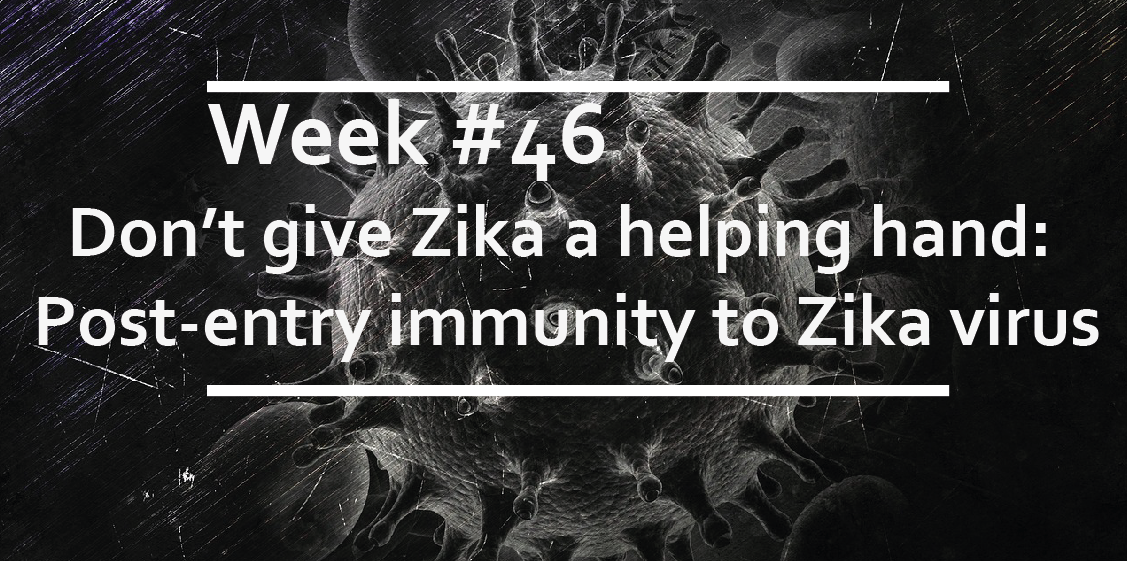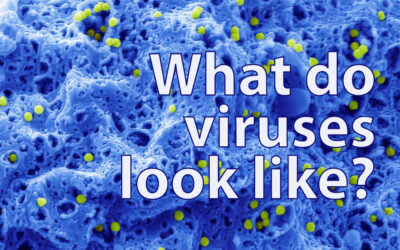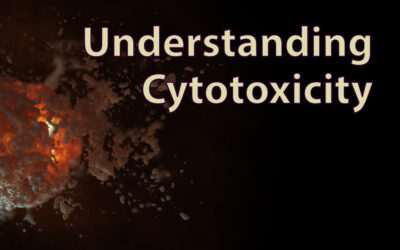Don’t give Zika a helping hand: Post-entry immunity to Zika virus
Zika virus (ZIKV) is a re-emerged mosquito-transmitted flavivirus that can cause a wide spectrum of long-term severe congenital manifestations, including microcephaly in new-born infants and neurological complications in adults (e.g., Guillain-Barré syndrome). The rapid advancement of a Zika vaccine is a public health priority; however, development of flaviviral immunity may carry disadvantages that must be carefully considered.
The viral surface envelope glycoprotein E is an obvious candidate for Zika vaccine development as it is present in multiple copies on the outer surface of the virus and as such, it is the main target of neutralizing antibodies. However, this may come with a caveat, as a number of studies suggest that antibodies that bind to the E proteins of ZIKV or DENV are at risk of triggering antibody-dependent enhancement (ADE).
ADE, a well-described phenomenon in DENV, occurs when sub-neutralizing concentrations of antibodies bind to viral particles and, via a FcγR-mediated mechanism, direct the virus to cells of the myeloid lineage, thereby leading to virus internalization and increased infectivity. Antibodies against ZIKV and DENV can weakly cross-react and, therefore, a vaccine against one of these viruses might result in enhancing infection of the other. Although there is no epidemiologic evidence that ZIKV can cause ADE in humans, studies conducted in mice have shown that antibodies against ZIKV E can enhance DENV disease and induce mortality. While not confirmed in human primates, these findings raise concerns about developing an anti-ZIKV E immunity.
But what about targeting non-structural proteins? Antibodies targeting non-structural proteins are not expected to bind to the whole assembled viron and, therefore, are unlikely to cause ADE.
Target the virus from within
The nonstructural protein-1 (NS1), which functions in flaviviral replication, pathogenesis, and immune evasion, has been shown to induce protective non-neutralizing antibodies that target virus-infected cells through Antibody-Dependent Cellular Cytotoxicity (ADCC) and complement-dependent pathways.
Using a mouse model, Bailey et al. investigate the protective efficacy of NS1-specific antibodies and show how these antibodies might help the formulation of novel flavivirus vaccines.
Bailey et al. isolated ZIKV specific mAbs from the plasma of a patient infected by ZIKV and screened these for reactivity to both African and Asian ZIKV NS1. Four of these antibodies were able to bind NS1, but none of them exhibited neutralization activity against both the African and Asian NS1s. With a moderate level of affinity against NS1, these antibodies showed low levels of somatic hypermutation. To determine whether these four mABs cross-reacted with other flaviviruses, the authors also screened them against DENV3, finding that they did not cross react with DENV3-infected cells. To evaluate the ability of these NS1-specific mAb to engage in Fc mediated effector functions, the authors modeled the activation of ADCC using a cell line expressing human FcyRIIIa and a luciferase reporter driven by a promoter for nuclear factor of activated T cells. Indeed, these anti-NS1 antibodies could activate Fc-mediated effector function. Moreover, transfection of NS1 alone (in the absence of viral infection) was sufficient to activate the Fc-FCyR effector functions induced by NS1-specific mAbs.
The danger of enhancing
Although these antibodies are doing exactly what they are supposed to do, might they possibly be enhancing against another ZIKV or DENV infection? Differently from full DENV immune plasma, none of the four NS1 specific mAbs enhanced ZKV infection in vitro in a flow cytometry-based assay.
Are these NS1 specific antibodies protective against ZIKV?
Since ZIKV does not readily establish infection in competent immune mice, the authors employed a Stat2 null mouse that exhibits defects in the interferon response, thereby increasing their susceptibility to viral infection. These Stat2 null mice indeed display clinical signs of disease following ZIKV infection. Two hours before challenging the mice with lethal doses of ZIKV, NS1-specific antibodies were administered intraperitoneally. Weight loss, clinical scores, and survival were then monitored daily. A mAb unrelated to ZIKV was used as an isotype negative control. The IgG control animals all succumbed to the disease, whereas the mice treated with the NS1-specific antibodies provided significant levels of protection against lethal challenge from both the African and Asian lineages of ZIKV, with one of the antibodies conferring survival rate greater than 80%. Viral titers were evaluated in the brains and spleens of mice at day 3 and 6 post-infection and found to be significantly lower in the presence of the NS1-specific antibodies, thereby reducing the disease severity.
How do these antibodies provide protection?
FcγR-mediated protection has been found to play an important role in the context of many viral infections, mainly through ADCC. To explore whether this kind of immunity is required for protection against ZIKV challenge, the authors mutated the Fc region of the NS1-specific antibody that showed the greatest protection in vivo, thereby abolishing the interaction of the Fc region with Fcγ receptors and complement proteins. The researchers then repeated the same prophylactic passive transfer challenge in vivo, finding that the NS1-specific antibodies with ablated FC-FCγR were unable to prevent the onset of the disease as the wild-type antibodies could. This finding suggests that the protection offered by the NS1 antibody mainly operated through Fcγ-mediated immunity. Since the NS1 specific antibodies are non-neutralizing (because they target a non-structural protein), the immunity achieved does not prevent virus infection but still . limits disease severity. This study suggests that the NS1-specific antibodies are unable to enhance viral uptake in vitro, making this approach a safer alternative to current flavivirus vaccine preparation. Relative to structural protein-based vaccines, an NS1-based vaccine can reduce the risk of ADE-induced severe disease in flavivirus naïve patients. However, given their non-neutralizing characteristics, whether they would be sufficient to significantly reduce disease in infected patients needs to be demonstrated in higher species.




